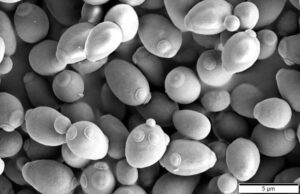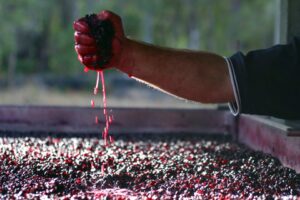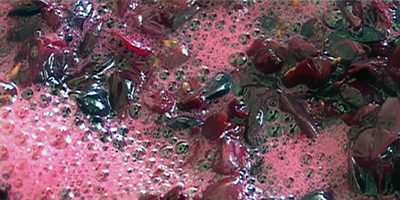The harvest is now at the door and, in the cellar, the grapes harvested will be transformed into must, which will begin almost immediately the process of fermentation. We have all heard this word many times. Yes, but what exactly happens?
The fermentation, in this case alcoholic (there are various types) is a form of energy metabolism that occurs in some yeasts in the absence of oxygen. It is responsible for different phenomena that we see every day, such as leavening of bread or the transformation of the must into wine. It is operated by a particular class of microorganisms, Saccharomyces, of which the most common is undoubtedly the S. cerevisiae, present on the peel of the grape as in the yeast of beer.

In particular the Saccharomyces cerevisiae They are mushrooms, unicellular and therefore invisible to the naked eye, which nourish the same sugars (glucose and fructose) present in the wort. And they are very greedy! In fact, in a few days all the sugar present disappears, leaving the place to an interesting product of waste:ethyl alcohol or ethanol, commonly called alcohol. Another product of secondary waste iscarbon dioxide: In fact throughout the cellar there is a feeling of suffocation, this being a lethal gas; It is therefore essential to aerate the cellar, to avoid fainting or even dead.

Fermentation lasts about 6 to 10 days depending on various factors. We said that the yeasts are already present on the peel of the grape, but usually, for safety, we add yeasts of the same type to help the fermentation. At this stage the temperature rises considerably due to the release of energy, and it is often necessary to control it with ad hoc containers, especially for white wines, in order not to alter the organoleptic characteristics of the wine. After this period of time, the yeasts, which have multiplied out of proportion, die of hunger, because in the wort no more sugars are present.
Fermentation is only the first phase of a broader process, called vinification, i.e. the biochemical transformation of grapes into wine and its refinement; This will be a matter of deepening in the next article.


